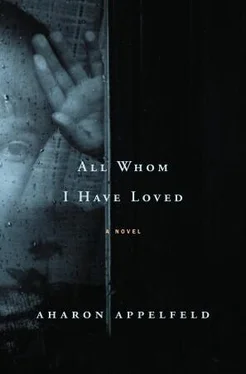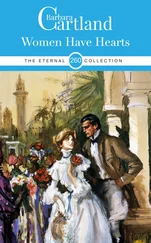“Thank God that there are things that can be ascertained,” said Dr. Wexler.
Father made no comment, and we went out.
On the way, Father talked and talked, trying to prove to me that everything was the guard's fault: he had been rude and had shouted; he had wanted to throw us out. Had he but spoken politely, Father would not have had to hit him, and everything would have gone fine. “Those guards really like to lord it over everyone; they need to be taught a lesson.”
Still, he wasn't pleased with what had happened, for after he had explained himself to me, he fell silent and buried his head in his coat. He didn't utter a word all the way back to Storozynetz.
We went into a restaurant. Father ordered borscht with cream and corn pie and asked the woman who owned the place how far it was to the monks' infirmary.
“It's not that far, but the road is terrible and very winding; you'd be better off renting a wagon.”
“There's a wagon here for rent?”
“Of course there is,” she said, and revealed a mouth full of small teeth.
“Would you be so good as to order us a wagon?” Father said to her, as if trying to placate her.
“I'll do it gladly,” she replied, and left to prepare the meal.
The dishes were tasty, and Father asked for more.
“Strange,” said Father.
“What's strange?” I asked.
Father lifted his head from the plate and did not answer my question. His forehead was clear, as was the area around his eyes, but it still seemed to me that he was tormented by thoughts that gave him no rest.
For dessert, the owner brought us plum compote and said, “This is on the house.” Looking at her, I saw that she liked her guests and wanted to make them happy. There was a purity in her expression. Father asked if she had ordered the wagon.
“I certainly did, and it's waiting for you.” She spoke in a child's voice.
“Thank you,” said Father.
“It's nothing,” said the woman, in a voice that reminded me, for some reason, of another woman.
We set out toward evening. The restaurant owner was right: it really was a winding, precipitous road, and we dismounted from the wagon several times to make it easier on the horses. The driver cursed both the steep ascent and the horses. Father held out the flask to him, and he took more and more swigs. In the end he turned toward us and asked, “You're Jews, aren't you?”
“Correct,” said Father with emphasis.
“What's with Jews at a monastery?”
“We have someone sick at the infirmary.”
“A sick Jew?”
“You'd suppose,” said Father in an affected tone.
“And still, what's with Jews at a monastery?”
“Jews also believe in God,” Father replied in a different tone of voice.
“Not the new Jews.”
“The new ones are not that different from the old ones.”
“Completely different,” the peasant said firmly.
“In what way?”
“The new ones don't pray.”
“And what else?”
“They don't fast on Yom Kippur.”
“What's wrong with that?”
“People who have no God are frightening.”
“Who do they frighten?”
“Us.”
“They don't frighten me.” Father made a funny gesture.
“True,” said the wagon driver.
“Why ‘true’?”
“Because sir's apparently one of them.”
Father laughed. The driver's wit had caught him off guard, and he said, “I see you know Jews well.”
“I grew up with them.”
“With the old Jews or with the new ones?”
“Both of them.”
“Which do you prefer?”
“The old ones keep to themselves, and the new ones travel to the city to learn medicine.”
“True, true.” Father laughed again, and it was clear that the wagon driver's insights amused him.
We reached the monastery with the last light. Father asked about the cost of the journey, and the driver named his price. Father doubled it and handed him the banknotes. The wagon driver was astonished. He shook his head and smiled.
We got down from the wagon and stood at the gate.
“May God bless you,” the driver called out from his seat.
“And you, too,” Father replied in the same tone of voice.
I immediately saw that this was a different place from the ones I had seen till now. A tall monk stood at the entrance to welcome us, and Father hastened to explain why we had come. The monk listened, and I saw that his attentiveness not like ours. “You're looking for Henia Drushenko?” The monk wanted to be sure.
“Correct.”
“She is, indeed, in our infirmary.”
“And may we see her?”
“I should think so.”
I looked up and saw that the entrance was decorated with pictures of saints and that the windows were of stained glass. From the nearby hall came a burst of organ music accompanied by a choir of male voices.
“I'll take you to the waiting room,” said the monk, and we went straight down a long corridor that was lit with tall wax candles. At its end there was a spacious waiting room. “Please be seated. You'll be called,” said the monk, and he retraced his steps.
Here the music could not be heard. From the long, narrow, stained-glass windows, a blue light streamed into the hall. The silence was so thick you could almost touch it.
“How do you feel?” asked Father, taking my hand.
“I'm all right,” I said. I was not afraid, but I had the feeling that this hall led to a long corridor, just like the one we had passed through, and at the end of it there was another hall, just like the hall we were sitting in. For some reason, this thought made me dizzy, and I closed my eyes.
Father got to his feet and went to look at the paintings on the walls. He liked them, and he smiled faintly, the way he always did when he was satisfied with some picture or object.
I closed my eyes and saw the road that we had taken with the wagon driver. The driver's behavior had not been pleasant. He had cursed and lashed at the horses without mercy, but Father had not been angry with him. The responses the driver gave Father had amused him, and he had smiled and laughed the entire way. Even now, as he stood next to the pictures, a trace of that same smile played on his lips.
“They've forgotten about us.” Father turned to me. “Good that there are ancient pictures here that one can look at. These old pictures are always amazing, because they don't try to be more than what they are — do you understand?” I did not understand, but I didn't dare ask him to explain. Most of what Father says is beyond me, and yet still I like to hear it.
A little later, a monk entered and Father introduced himself. “Arthur Rosenfeld. I used to be married to Henia. And this is her son.”
“Henia is very sick.” The monk did not hide the truth.
“Is she talking?” Father asked.
“Very seldom, only when she opens her eyes.”
“We would like to see her.” Father spoke in a quiet voice.
“Come with me.”
Again we went down a long corridor that was lit with tall wax candles. Here and there in the arched ceiling there'd be a dark skylight. For some reason, I suddenly recalled Tina's small, wondering face, when Victor and Father had loaded the suitcase and duffel bag on the sleigh. Her wonder had been intense, as if she realized that from now on her life would no longer be what it had been. I tried to uproot this memory from my mind and think only about Mother. But my efforts were futile; only when Father held out his hand to me did I understand that at the end of the corridor we would stop, drop to our knees, and fall to the floor.
The monk stopped walking, and we found ourselves standing next to a white iron bedstead. In the bed lay a woman, her head sunk into a pillow and her eyes closed. I did not recognize her, and neither did Father. “That's Henia?” he asked falteringly.
Читать дальше












